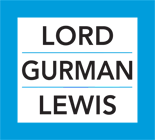Interview Arrival Time: The Early Bird Doesn’t Get Burned
by Jon Lewis
Suppose you’re a candidate who has been invited for an in-person interview for a position you really want. You’ve thoroughly prepared for the interview, reviewing the position description and researching both the employer and your interviewers. You’ve got on-point experience, strong credentials, and make a good personal impression. Logistically you’ve planned your travel to arrive by the scheduled interview time. You’ve done everything right … almost.
Unfortunately, all your preparation, experience, and interpersonal skills can still be severely compromised by Murphy’s Law of Travel: Whatever can make you late will make you late. Planning to arrive “on time” for an interview isn’t a good idea, as it leaves you vulnerable to unexpected traffic, subway delays, long lines at building security, etc., etc., etc. For this reason, I recommend that interviewees make sure to arrive at their destination well before to their scheduled start time—preferably 30 minutes in advance, 15 minutes at a minimum.
I realize that the above suggestion may sound overly cautious and raise some objections, such as the following:
- No matter how early I plan on arriving something could always go wrong—there’s no way to really be sure anyway. This is of course true, but the more advance time a candidate allows the better the odds of actually showing up on time. Why make the risk of a problem greater than it has to be? Based on my years of experience as both a job candidate and a legal recruiter, 30 minutes seems to me like a prudent cushion. Obviously, everyone has to find the comfort zone that works for them.
- If I’m late through no fault of my own they can’t really hold that against me. Oh yes, they can! While you may know that your planning was perfectly reasonable and you are late due only to circumstances beyond your control, your interviewer doesn’t know that and might not take your word for it. What ultimately matters when interviewing is the impression you make and being late always carries the risk of a negative impression, regardless of the presence or absence of fault.
- If I show up too early, I’ll look over-anxious or desperate.
Just because you arrive at the location of your interview 30 minutes early doesn’t mean you have to go in 30 minutes early. There are always ways to pass the time—grab some coffee, stroll around what could become your new neighborhood, take another read through your preparatory notes. While none of that may be the most efficient use of your time, consider it an investment well worth making for a job you really want.
Also, arriving 30 minutes early may not leave you with as much time to kill as you think—don’t underestimate the time you’ll need after you enter the building. I suggest beginning the process of checking in with building security by about 15 minutes before the interview is to start. That should allow sufficient time to pass through any line at security, get to the correct floor, announce your arrival to the person who greets you and stop in the restroom to use the facilities and/or do a final check of your attire and appearance.
A final note on this subject—if in spite of, or in the absence of, reasonable precautions it appears that you are going to be late, let the interviewer know as soon as you are aware. Showing up late for an interview is bad, but doing so without prior notice is much worse.
